Tools Required
| • | J 8614-01 Pinion Flange Holder |
| • | J 33782 Pinion Oil Seal Installer |
Removal Procedure
Important: Observe and mark the positions of all the driveline components relative to the propeller shaft and the axles prior to disassembly. These components include the propeller shafts, drive axles, pinion flanges, output shafts, etc. Assemble all the components in the exact places in which you removed the parts. Follow any specifications, torque values, and measurements made prior to disassembly.
- Raise the vehicle. Refer to Lifting and Jacking the Vehicle in General Information.
- Remove the tire and wheel assemblies. Refer to Tire and Wheel Removal and Installation in Tires and Wheels.
- Remove the brake calipers. Refer to Rear Brake Caliper Replacement in Disc Brakes.
- Remove the propeller shaft. Refer to Rear Propeller Shaft Replacement in Propeller Shaft.
- Measure the amount of torque required to rotate the pinion. Use an inch-pound torque wrench. This will give the combined preload for the following components:
- Record the measurement.
- Draw an alignment mark between the pinion stem and the pinion flange/yoke.
- Install the J 8614-01 as shown.
- Remove the pinion nut while holding the J 8614-01 .
- Remove the washer.
- Install the J 8614-2 (2) and the J 8614-3 (3) into the J 8614-01 (1) as shown.
- Remove the pinion yoke by turning the J 8614-3 (3) clockwise while holding the J 8614-01 (1).
- Remove the pinion oil seal using a suitable seal removal tool.
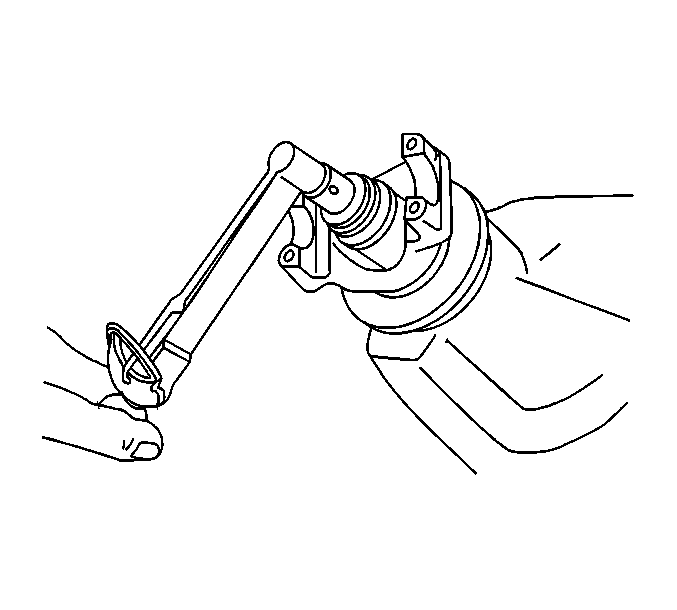
| • | The pinion bearings |
| • | The pinion seal |
| • | The carrier bearings |
| • | The axle bearings |
| • | The axle seals |
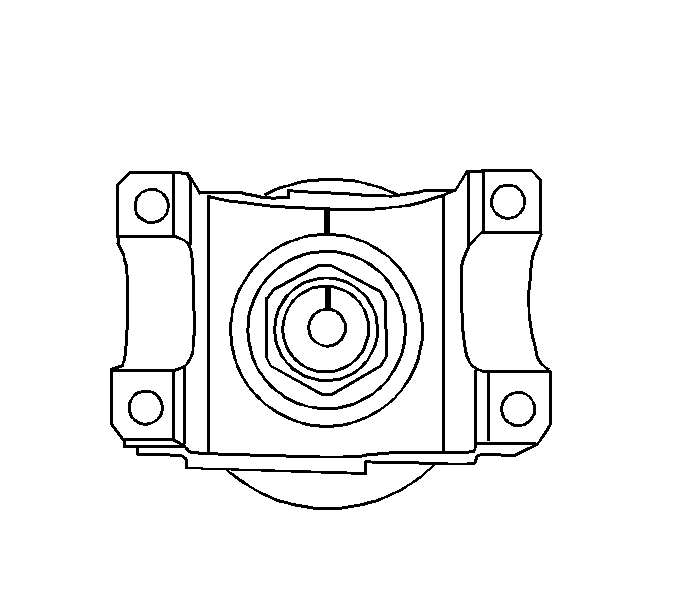
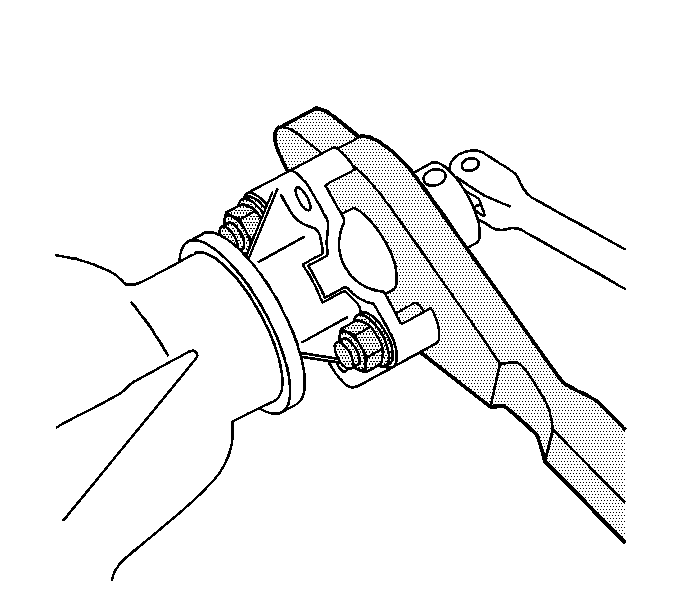
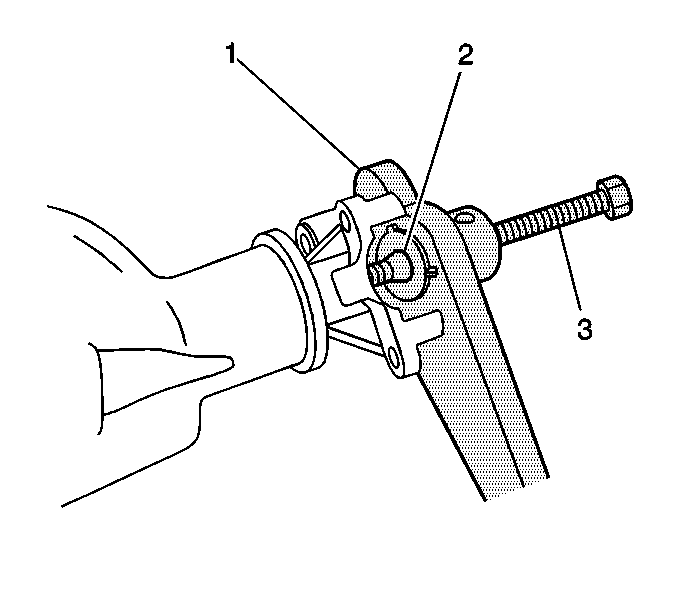
Use a container in order to retrieve the lubricant.
Important: Do not damage the axle housing sealing surface.
Installation Procedure
- Install the new pinion oil seal using the J 33782 .
- Apply sealant, GM P/N 12346004 (Canadian P/N 10953480) or equivalent, to the splines of the pinion flange/yoke.
- Install the pinion flange/yoke.
- Seat the pinion flange/yoke onto the pinion shaft by tapping it with a soft-faced hammer until a few pinion shaft threads show through the yoke.
- Install the washer and a new pinion nut.
- Install the J 8614-01 onto the pinion flange/yoke as shown.
- Tighten the pinion nut while holding the J 8614-01 .
- Measure the rotating torque of the pinion. Compare this measurement with the rotating torque recorded during removal.
- Once the specified torque is obtained, rotate the pinion several times to ensure the bearings have seated. Check the rotating torque and adjust if necessary.
- Install the propeller shaft. Refer to Rear Propeller Shaft Replacement in Propeller Shaft.
- Install the brake calipers. Refer to Rear Brake Caliper Replacement in Disc Brakes.
- Install the tire and wheel assemblies. Refer to Tire and Wheel Removal and Installation in Tires and Wheels.
- Inspect and add axle lubricant to the axle housing, if necessary. Refer to Rear Axle Lubricant Level Inspection .
- Lower the vehicle.
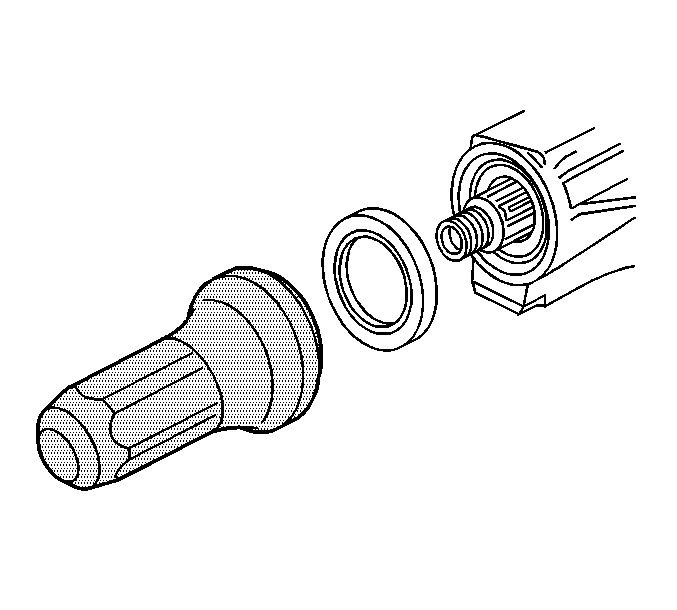
Important: Install the pinion gear flange/yoke to the pinion gear shaft in the same position as marked during removal in order to maintain correct driveline balance.
Align the marks made during removal.
Notice: Do not hammer the pinion flange/yoke onto the pinion shaft. Pinion components may be damaged if the pinion flange/yoke is hammered onto the pinion shaft.

Notice: Refer to Fastener Notice in the Preface section.
Important: If the rotating torque is exceeded, the pinion will have to be removed and a new collapsible spacer installed.
Tighten
Tighten the nut until the pinion end play is removed. Rotate the pinion while
tightening the nut to seat the bearings.

Tighten
Tighten the nut in small increments, as needed, until the rotating torque is
0.40-0.57 N·m (3-5 lb in) greater than the
rotating torque recorded during removal.
